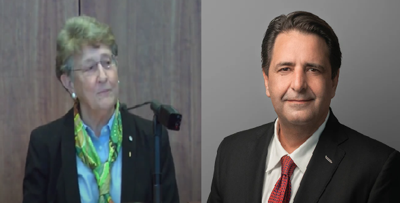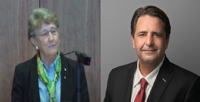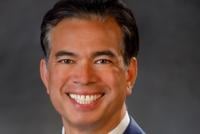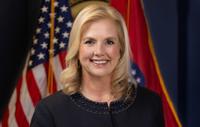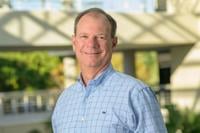
Jean Toal, left, and Peter Protopapas
COLUMBIA, S.C. - Saying court oversight of companies is justified only “in the rarest of cases,” the South Carolina Supreme Court nevertheless approved what has become a routine procedure in the state’s specialized asbestos court, this time in the case of a Canadian asbestos producer that never did business directly in the state.
The decision appears to greenlight a trial against international companies including De Beers and Anglo American over what a local lawyer says was a “colossal fraud” to avoid asbestos liability in the U.S.
That lawyer, Peter Protopapas, collects a third of whatever proceeds he can obtain when he steps in as head of long-defunct companies in order to sue their former insurers. But he faces about $1.4 million in penalties in the U.K. and France for what courts there say is illegal interference in the operations of Cape Plc, the corporate successor to a South African asbestos mining firm.
By approving a receivership against Atlas Turner, the Canadian company, the South Carolina Supreme Court gave apparent consent for a trial against Cape’s French parent and supposed co-conspirators.
That trial would be a non-jury proceeding before South Carolina Judge Jean H. Toal, who has made no secret of her dislike for asbestos defendants. It would also be a showdown over international law, with a U.K. court barring Protopapas from acting as receiver and South Carolina’s highest court describing its counterpart’s action as “shocking” and “indefensible.”
In a May 21 opinion by Justice D. Garrison Hill (the former leader of the state’s asbestos docket), the court approved Judge Toal’s appointment of Protopapas as receiver for Atlas Turner, rejecting the Canadian company’s argument South Carolina lacked jurisdiction over it.
The receivership allows Protopapas to negotiate directly with insurance companies to obtain money for plaintiffs who sued in South Carolina, often by “buying back” policies in a maneuver Judge Toal believes renders those policies unavailable for plaintiffs anywhere else.
The high court acknowledged receiverships should be rare, especially in cases where no one has obtained a judgment against the target company.
“This extreme power may only be used in extreme cases, such as where a defendant's conduct demonstrates it is fraudulently concealing or disposing of assets that may be responsive to a later judgment,” the court said.
The opinion makes no mention of Judge Toal’s practice of allowing Protopapas to take in tens of millions of dollars in insurance proceeds and store it in Delaware trusts that do not disclose how the money is disbursed. Previous Legal Newsline coverage detailed the procedure.
She has approved more than 20 such receiverships so far. In one long-running case, Protopapas is accused of settling all litigation with the named plaintiffs while still pulling in millions in insurance proceeds, supposedly to pay plaintiffs, and collecting a third of the money for himself in fees.
The court said Atlas Turner deserved receivership because the company refused to participate in evidence-gathering or provide any representatives to disclose its operations decades ago or insurance coverage from that time. The company said no one was still alive with that knowledge.
The court also mentioned the ongoing drama with Cape, where the company, owned by French billionaire Mohed Altrad, obtained an order from the U.K. High Court of Justice barring Protopapas from acting as receiver or face potential criminal penalties. The court also held him personally liable for 1 million pounds in Altrad’s legal fees. A French court later affirmed the order in that country.
The South Carolina Supreme Court criticized its U.K. counterpart for interference, calling it “shocking to American eyes” and not worthy of respect.
“As it would with any court, such a ruling by us would be in the words of Lord Scarman, a brutum fulmen (an empty noise),” the South Carolina court said.
Protopapas, in a follow-up motion, urged Judge Toal to set a trial date, saying she should be able to complete the proceedings in five days. He also accused Cape and its co-defendants of being in league with the same insurers he had done battle with as receiver in other cases, naming their defense attorneys as well as counsel in the U.K.
The South Carolina Supreme Court said the receiver for Atlas Turner could only act to protect assets that are in danger of being squandered before plaintiffs obtain judgment. Since in virtually every receivership so far those “assets” have been insurance proceeds paid out by solvent companies, it is not clear how such money could be squandered.
The court also didn’t discuss Judge Toal’s practice of approving “buybacks” that channel insurance proceeds to plaintiffs in her court and theoretically eliminate it for plaintiffs elsewhere.
The Cape case is different, Protopapas acknowledged, since there is no insurance to fight over. Instead, he is trying to obtain judgments against Cape’s alleged co-conspirators, including parent company Altrad Group, which he could then use to attach assets worldwide. Any attempt to do so will run afoul of the U.K. court order prohibiting Protopapas from doing exactly that.

